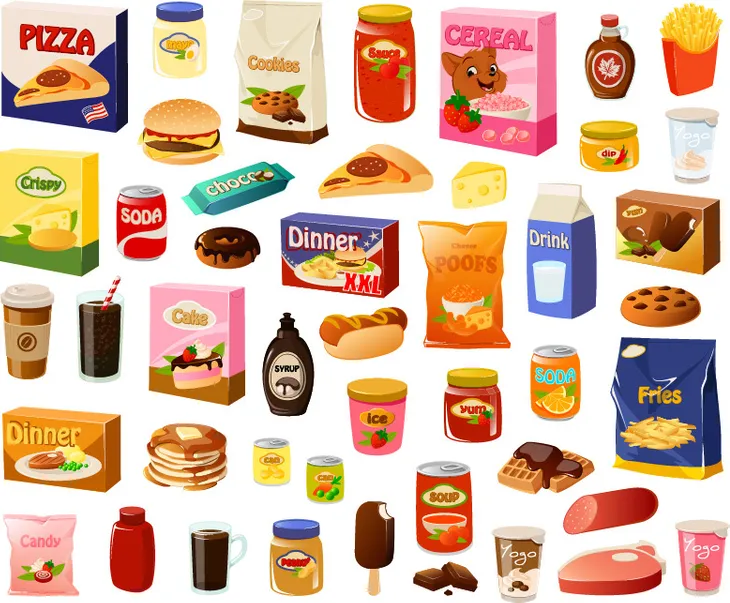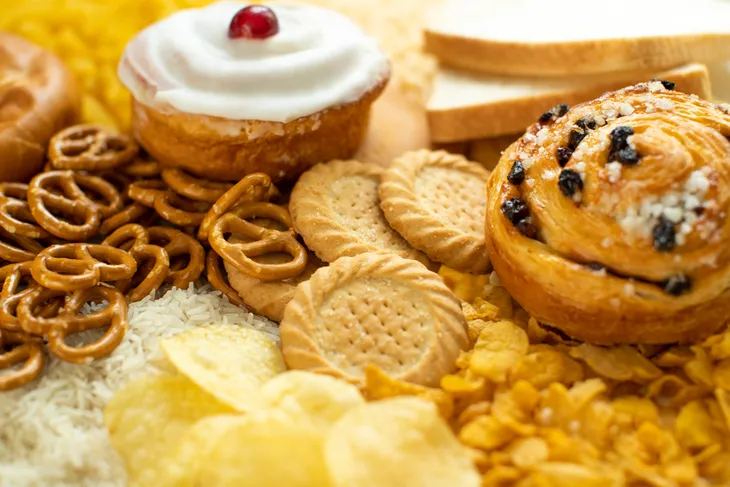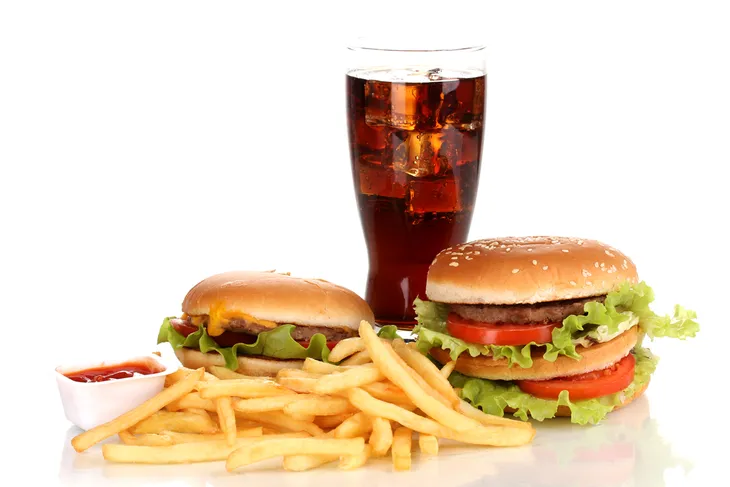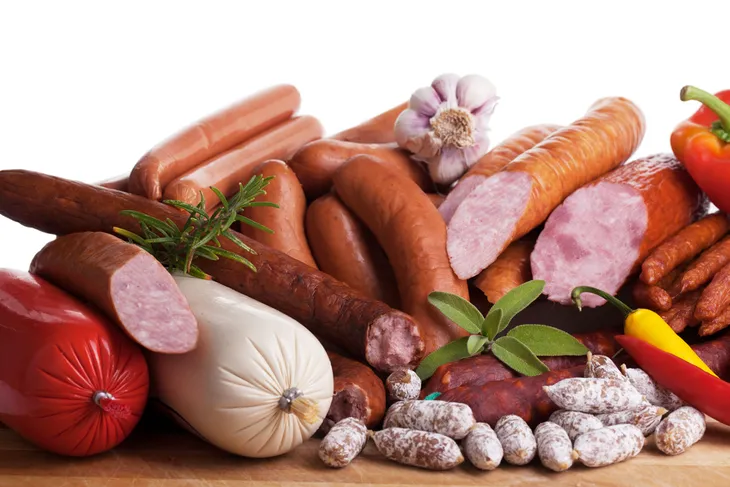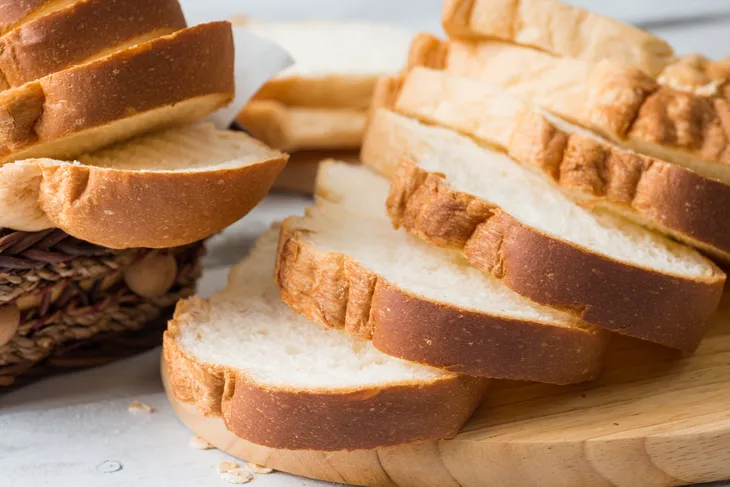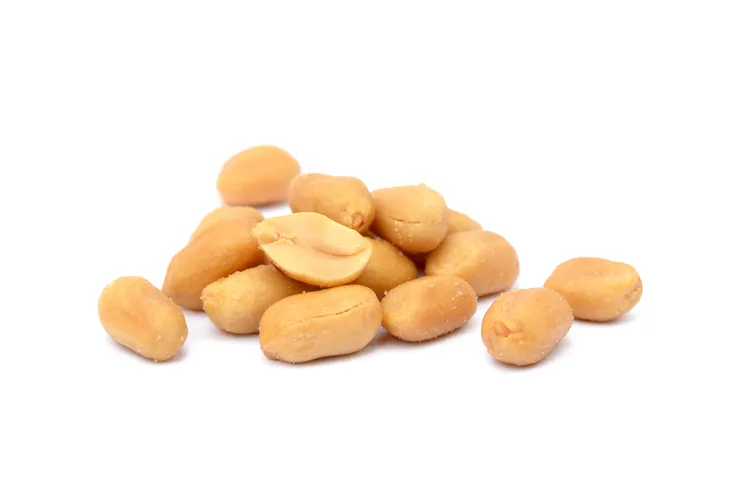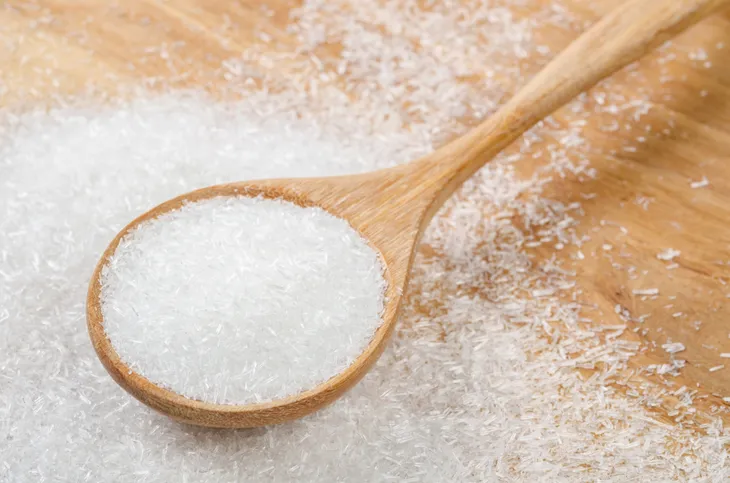You may have heard a doctor or a nutritionist say, “food is medicine.” The choices you make at mealtime impact your overall health significantly. Choosing the right combination of dishes can ease pain and even correct some mild conditions.
However, as crucial as it is to know which foods to consume, it is equally critical to know which ones you should avoid. While few substances will harm you if eaten in moderation, some can cause significant trouble if you overindulge. You probably suspect that too much of the wrong thing can lead to obesity and even cancer — but did you know it can also weaken your immune system?
Want diet & nutrition content delivered straight to your inbox? Sign up for our exclusive diet & nutrition newsletter!
Ultra-Processed Foods
Unless you consume a raw apple, chances are good you eat processed foods whenever you sit down at the table. Many people worry about their consumption of “processed foods” without knowing what the term means. Heating, freezing, dicing, juicing — these are all methods of processing food.
So what’s the difference between a smoothie made with fruit and ice and a bag of chips made from potatoes — salt and fat? It all lies in the ingredients. The term “ultra-processed” refers to items made from substances extracted from foods, but with little if any intact components.
Therefore, items like snack foods make the list because they are made from dehydrated bits of potato or other starches bound together. During the process of forming the raw materials for the finished product, most of the nutritional value gets stripped away. All you get are empty calories. These provide a quick boost of energy, but they don’t give you the nutrients you need to keep your immune system running at optimal levels.
Sweets and Candy
Sweets prove problematic for many reasons. One reason that you should pass on the candy bowl is that donuts and candy bars contain high amounts of calories. This extra energy contributes to becoming obese or overweight, which puts you at an elevated risk of multiple diseases.
How does sugar impact your immunity directly? Scientists evaluated the impact of high blood sugar in people with diabetes on immune function. They discovered that excess glucose weakens infection-fighting antimicrobial beta-defensin peptides. Without these as a line of defense, your body falls prey to bacterial and viral invaders more readily.
Fried Foods
Some oils, like olive oil, have substantial health benefits. So how does this method of food preparation prove problematic? The answer lies in an ingredient frequently found in such products. Tert-Butylhydroquinone (tBHQ) suppresses the immune response the body produces when fighting an infection like the flu.
While the FDA considers this substance safe when consumed in moderation, the typical fast-food-laden American diet contains almost double the recommended daily amount. More alarmingly, researchers also noted that too much tBHQ could reduce the effectiveness of the flu vaccine. For best results during the cold and flu season, lay off the daily drive-thru visit.
Dairy Products
Your mucus membranes serve as one of your primary defenses against invading germs. Another significant part of your body’s natural safeguards exists in your gut, which harbors a substantial number of immune cells. These travel from your intestines to your respiratory tract when you get an infection based on signals that your body gives.
The problem with dairy is how it triggers the release of too much mucus. When this occurs, it makes it harder for bacteria and viruses to invade. That sounds positive — but your body needs some exposure to germs to build up antigens against common infections. People who consume excess dairy may lack this defense. Consequently, their bodies launch an enhanced inflammatory response to minor injuries.
While inflammation can kill germs, it can also leave you feeling miserable. Most cold symptoms occur from your immune system doing its job. Since dairy products do offer nutritional benefits, consume them in moderation if you so choose, but lay off when you get an infection. (You can also try some of these Non-Dairy Foods That Are Rich In Calcium).
Pizza and Pasta
Pizza and pasta are twin disasters when it comes to immune system function. They combine gluten, processed flour, added sugars and dairy. While these foods taste delicious, you should avoid them when you have a cold or you risk adding to your misery.
Fortunately, if your feverish brain craves nothing more than a big slice or bowl of comfort food, you can make these dishes healthier. Try substituting a cauliflower crust for a flour-based pizza. If you crave pasta, try spiralized zucchini noodles or opt for penne made from chickpeas or lentils. Skip the sugary store-bought sauce and whip up homemade marinara with tomatoes, olive oil and spices.
Processed Meats
If you think you’re eating healthfully by stopping at the local sandwich shop, you might want to reconsider what you order. Eating just four strips of bacon per day can increase your risk of colorectal cancer by 18-percent, according to the World Health Organization (WHO). During processing, the additives and methods used turn the substances in the meat carcinogenic.
Researchers also believe that a diet high in these products contributes to chronic inflammatory conditions. When your body is already under stress from inflammation, it has fewer resources left over to fight germs. If you choose to consume these products at all, enjoy them no more than once or twice per week.
Bread and Wheat Products
You may have seen products labeled “gluten-free” at the grocery and wondered about the fuss. After all, gluten is a type of protein found in wheat. And unless you have celiac disease, it shouldn’t bother you if it’s in whole-grain form — right? Not necessarily.
Experts estimate that as many as 18 million Americans suffer from non-celiac gluten sensitivity. That means your body reacts to this wheat protein as an allergen, such as pollen. While you will typically endure more gastrointestinal symptoms than a runny nose or itchy eyes, the inflammation weakens your immune response.
Salty Snacks
Your heart is one of your most vital organs, and if it is under stress, your entire body will feel the effects. One way to strain your heart is through developing hypertension, or high blood pressure. While humans should eat no more than 2,300-milligrams of sodium daily, many Americans consume far more. This excess increases hypertension, something one out of every three American adults faces.
To lower your sodium intake, read food labels carefully. For example, many commercial brands of canned soup contain half or more of your recommended daily salt intake in one small container. Other hidden sources of sodium include sauces, salad dressings and mixes such as pancake mix.
Peanuts
In individuals with a peanut allergy, the allergic reaction to the histamines produced by this ground legume is severe in susceptible individuals. Those with allergies can develop respiratory, gastrointestinal and neurological symptoms that can cause death.
However, even if you don’t have a life-threatening allergic reaction, you should avoid peanuts if you have a cold or the flu. That’s because your body’s response to the histamines, however small, can increase the severity of your symptoms. If you notice a slightly stuffy nose hardening to cement after you consume a bag of ballpark goodness, you have a sensitivity. It might not bother you much on a typical day, but it can slow the healing process if you are sick.
Alcohol
Many OTC and prescription cold and flu remedies contain warnings to avoid mixing the medicine with alcohol for a good reason. Some ingredients, like antihistamines, cause drowsiness, and beer or wine can increase this effect. Plus, your liver already has to pull a double to cleanse excess toxins from commercial preparations from your body. Don’t make it do additional overtime by pouring yourself a shot.
“Wait a minute,” you might be thinking, “I heard that sleep bolsters your immune function. Wouldn’t it make sense to knock myself out with a hot toddy plus a spoonful of NyQuil?” Unfortunately, it’s the quality as well as the quantity of Zzz’s that matter in the war against germs. Alcohol interferes with your circadian rhythms and blocks REM sleep, both of which can leave you waking up feeling groggy and unrefreshed.
Coffee
How could you survive a Monday morning budget meeting without a cup of joe? Don’t worry. You don’t have to give up your morning pick-me-up. However, you might want to refuse that third cup, especially if you feel under-the-weather.
Why? It’s because too much caffeine amps up cortisol levels, which can lead to a depressed immune system response. It also makes it more challenging for you to get your sleep, which you need for your body to produce healing substances. Try setting time limits on your consumption. Start with a rule that you won’t have caffeine after 4 p.m. If you still find yourself counting sheep, drop it back to 3 p.m.
MSG
Your thymus gland and your spleen both play significant roles in your immune function. Studies performed with rats indicated that MSG has a toxic effect on both of these organs. Similar processes in humans could decrease your body’s response to invaders.
Fortunately, researchers also discovered that time will reverse the adverse effects on your spleen. However, this organ needs time to regenerate. What this means for you is that you should probably pass on that comforting cup of hot-and-sour soup when you’re ill or ensure your favorite canned soups or vegetable sauces don’t contain MSG.

